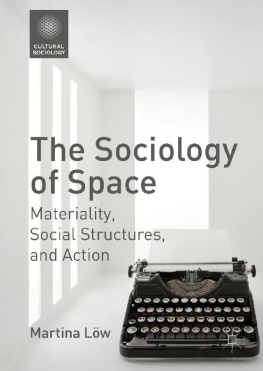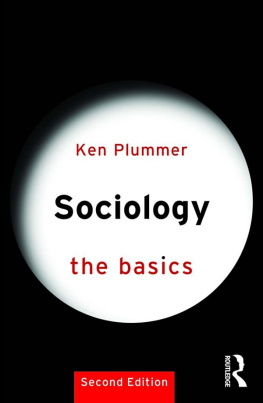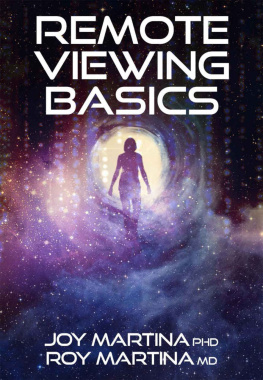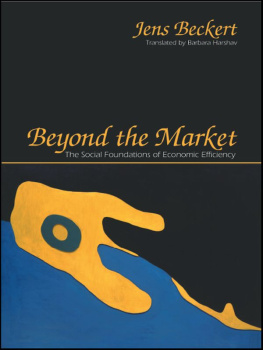Cultural Sociology
Series Editors
Jeffrey C. Alexander
Center for Cultural Sociology, Yale University, New Haven, Connecticut, USA
Ron Eyerman
Center for Cultural Sociology, Yale University, New Haven, Connecticut, USA
David Inglis
Department of Sociology,Philosophy and Anthropology, University of Aberdeen, Exeter, Aberdeenshire, UK
Philip Smith
Center for Cultural Sociology, Yale University, New Haven, Connecticut, USA
Cultural sociology is widely acknowledged as one of the most vibrant areas of inquiry in the social sciences across the world today. The Palgrave Macmillan Series in Cultural Sociology is dedicated to the proposition that deep meanings make a profound difference in social life. Culture is not simply the glue that holds society together, a crutch for the weak, or a mystifying ideology that conceals power. Nor is it just practical knowledge, dry schemas, or know how. The series demonstrates how shared and circulating patterns of meaning actively and inescapably penetrate the social. Through codes and myths, narratives and icons, rituals and representations, these culture structures drive human action, inspire social movements, direct and build institutions, and so come to shape history. The series takes its lead from the cultural turn in the humanities, but insists on rigorous social science methods and aims at empirical explanations. Contributions engage in thick interpretations but also account for behavioral outcomes. They develop cultural theory but also deploy middle-range tools to challenge reductionist understandings of how the world actually works. In so doing, the books in this series embody the spirit of cultural sociology as an intellectual enterprise.
More information about this series at http://www.springer.com/series/14945
Martina Lw
Sociology, Technische Universitt, Berlin, Germany
Cultural Sociology
ISBN 978-1-137-48771-1 e-ISBN 978-1-349-69568-3
DOI 10.1057/978-1-349-69568-3
Library of Congress Control Number: 2016945135
The Editor(s) (if applicable) and The Author(s) 2016
This book was originally published in German in 2000 under the title Raumsoziologie. The original publisher is Suhrkamp Verlag, Berlin. The translation of this work was funded by Geisteswissenschaften International - Translation Funding for Humanities and Social Sciences from Germany, a joint initiative of the Fritz Thyssen Foundation, the German Federal Foreign Office, the collecting society VG WORT and the Brsenverein des Deutschen Buchhandels (German Publishers & Booksellers Association).
This work is subject to copyright. All rights are solely and exclusively licensed by the Publisher, whether the whole or part of the material is concerned, specifically the rights of translation, reprinting, reuse of illustrations, recitation, broadcasting, reproduction on microfilms or in any other physical way, and transmission or information storage and retrieval, electronic adaptation, computer software, or by similar or dissimilar methodology now known or hereafter developed.
The use of general descriptive names, registered names, trademarks, service marks, etc. in this publication does not imply, even in the absence of a specific statement, that such names are exempt from the relevant protective laws and regulations and therefore free for general use.
The publisher, the authors and the editors are safe to assume that the advice and information in this book are believed to be true and accurate at the date of publication. Neither the publisher nor the authors or the editors give a warranty, express or implied, with respect to the material contained herein or for any errors or omissions that may have been made.
Translated by Donald Goodwin
Cover illustration: TongRo Images / Alamy Stock Photo
Printed on acid-free paper
This Palgrave Macmillan imprint is published by Springer Nature The registered company is Nature America Inc. New York
Series Editors Preface
In her strikingly original intervention The Sociology of Space , Martina Lw rejects objectivist understandings of space as material and external, the absolute idea of space as a container. It may have become normal to conceive space as a configuration of things, but Lw forcefully objects to the problematic idea that spaces seem to come to an end within the realm of the material. Instead, she proposes to understand space as a meaningful horizon, as an atmosphere constituted by the subjective experience of material things. Even as an atmosphere seems outside us, it is not part of a visible world of things but, rather, an external effect of the spatial arrangement of social goods and people as realized in perception. Spacing arranges social goods and people, creating the distribution of materiality in a potential scene. Perception drives a complementary but distinctive process Lw calls synthesis, the interpretive act of imagining that, by linking together people and goods, creates a space: it is the symbolic components of an action situation that make it possible for institutional arrangements to condense into patterns of space.
With these signal arguments, Lw brings the sociology of space into the scene of cultural sociology, particularly into the midst of recent investigations into iconic consciousness and the materiality of meaning. She opens up a new perceptual space for cultural sociology to think with. This catalyzing connection will surely create new theoretical and empirical syntheses in the years ahead.
Preface to the English Edition
In the past few decades, it has become customary in Anglo-American and in Francophone geography to refer to space and spatiality as social products. This has, at least since the turn of the millennium, been evident in sociology and many neighboring disciplines as well. Henri Lefebvre, Manuel Castells, David Harvey, Doreen Massey, Claude Raffestin, and many others have done pioneering work in this area. Many have gained the impression that by virtue of the spatial turn the humanities and social sciences were able to abandon one-sided material or territorial ideas of space at the turn of the millennium. Briefly stated, the spatial turn stands for the insight that all spaces (architectural spaces, urban spaces, regions, nation-states, bedrooms, recreation parks, river landscapes, etc.) are always also results of social production: not only in the sense that there are professions that plan and design these spaces, but also in terms of the challenging insight that spaces only become spaces for people inasmuch as they areagain and again and againproduced socially. In other words: the constitution of space is a performative act. At the moment of placement, we establish relations between elements (and classes of elements) with the result that we join these elements (the table, the door, the church, the lines on the map of a region) to yield a space. In sociological terms that is neither a purely cognitive act nor a pure phenomenon of perception, but is socially pre-structured and takes place by way of institutions, conventions, discourses. How we perform the synthesis between objects, how we span the space between things and people is a highly conventionalized, objectified practice, one that is pre-structured by professions such as planning and architecture.
Even in the 1990s, and despite the work of Lefebvre, the claim that spaces are social could cause provocation at sociology conferences. I myself have experienced numerous debates in which it was argued that, as materialities, spaces were not an object of sociology, but rather of planning or geography. Such argumentation is hardly imaginable today. On the one hand, geography has become more social and more cultural; on the other hand, sociology accepts space as a field of study. Moreover, the disciplines planning and architecture emphasize the fact that they quite naturally work on the basis of relational spaces.








